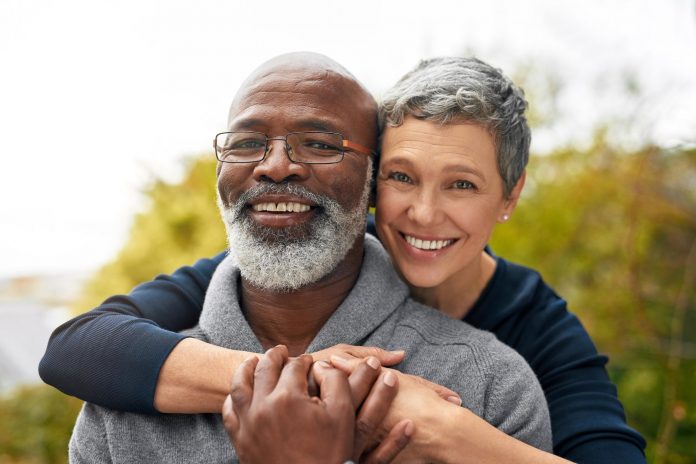I got my period at 14 in a frenzy of anticipation fueled by too many readings of Judy Blume’s classic Are You There God? It’s Me, Margaret. Junior high health class sold menstruation as the gateway to motherhood, a gift that would make the cramping, bleeding, and missed pool parties totally worth it.
But to me, menstruation felt more like a time bomb, a fuse that my body relit every single month. I spent the next 38 years trying not to get pregnant.
Many people, including my friends and relatives, have spent years trying to get pregnant. Yet I have known since high school that I didn’t want children with a certainty that most people would scoff at in one so young. It’s been a defining aspect of my life, but I only began talking about it a couple of years ago while working on a documentary about it called “My So-Called Selfish Life.” Interviews with other people led to a dawning realization that I’d been waging a decades-long war with my reproductive system, simply because I refused to put it to its intended use.
A self-imposed abstinence was my initial contraception, mostly because I was terrified of getting pregnant. It helped that I was an awkward, nerdy teenager with limited prospects, but even so, people did hit on me from time to time. I don’t regret not having kids, but I do regret being so scared of sex that I didn’t take advantage of that one flirty Australian dude’s offer while backpacking through Europe at age 19.
When I had sex for the first time at 23, I was unprepared in every way. My casual date assumed that, at my ripe old age, I would be a seasoned sex-haver with a firm grip on contraception. This was only the first disappointment of his evening. But despite the lack of protection, he seemed happy to put his unsheathed penis into my vagina, and I said fine, because, well, Let’s just get this virginity thing over with. It was my first—but not my last—experience with how disinterested men could be about taking some responsibility for the creation of potential babies.
Miraculously (perhaps because I was not starring in an after-school special, where every act of first sex results in pregnancy), I came out of the liaison unfertilized. The very next week I went for my first-ever gynecologist appointment and I got on the pill—and soon experienced some of the possible side effects: I gained weight, got headaches, and my blood pressure began to creep upwards.
On the bright side, my period, which had been so hideously long and heavy that I was diagnosed with iron deficiency anemia, dwindled to a trickle that came and went in four uneventful days.
Best of all, though, I felt in control of my body and my life. I carried my pink compact everywhere with me, so I’d be able to take my pill at the same time every day.
Still, taking oral contraception did not prevent me from panicking when something seemed amiss. I had my first pregnancy scare in my late 20s, when my period was over a week late, despite still being on the pill. My home pregnancy test showed negative, but I didn’t believe it until I actually got my period yet another week later. How ironic that this thing I so loathed was also the thing whose arrival I most celebrated.
Lauren, a 21-year-old college student I interviewed for my documentary, told me how she used to take pregnancy tests during long stretches of time when she was not sexually active, just because she was so paranoid about pregnancy. When I first met her, she was already two years into building a case to get her fallopian tubes tied or removed. (These procedures can be more difficult for younger or child-free women to obtain, as some doctors worry that you’ll change your mind.)
By my late 30s, after 15 years on the pill, my blood pressure had reached dangerous heights, but every time my gynecologist told me to go off the pill, I refused. (Birth control pills with estrogen, especially in higher doses, can sometimes raise blood pressure in some people, which could put you at risk for stroke or heart disease). She sent me home with a blood pressure cuff and told me to check it every day. Not until age 40 did I finally quit the pill: I came to my senses about my high blood pressure, but more than anything, I was just so tired of being the only person ever in charge of birth control.
Now it was my partners’ turn to take responsibility. Over the years, I had heard so many excuses from guys who didn’t want to put on a condom, like it didn’t feel as good, or it killed the mood. When I got off the pill, they wrapped themselves up with no complaint—and I saved my last unused pill compact as a souvenir.
I eased into my 40s reliant on condoms and my aging ovaries. Sure enough, one day I found myself sitting on the toilet seat waiting for a little stick to tell me if I was pregnant or not. As time crawled by, I thought about where I’d go for an abortion: The clinic in New York City where I regularly escorted women past half a dozen protesters from a nearby Catholic church. As they offered prayers, they pressed pamphlets full of inaccuracies into the hands of these young women, telling them their grandmothers were ashamed of them. My test came out negative, but I remained an escort until the clinic stopped doing abortions altogether.
Many women who don’t want children can rattle off a list of things people have accused them of being: selfish, immoral, cold, greedy, unable to experience real love—just to name a few. But to me, the worst part has never been the name calling, or the threats of lifelong regret and dying alone.
Instead, it’s been watching the right to reproductive health care erode in front of my eyes. Whether we want children or not, people with access to contraception, voluntary sterilization, and abortion can make their own choices on their own schedules. Such unruliness is a real threat to the patriarchy—especially because many of us childfree women have more free time to smash it.
For over 38 years, my ovaries faithfully released their eggs. Then, during the spring of my 52nd year, the bleeding stopped. Thankfully, it was not another pregnancy scare; this time it was menopause. Some women may feel sadness about menopause, as if a chapter of their lives has ended; I was awash in joy and relief. The long arc of presumed fertility defined my societal usefulness as a woman—and my constant fight against it. Finally, I could relax.
If I’d lived 100 years ago, I would not have had much of a say in terms of my reproductive system’s workings. But now I do, and I’m saying it loud: I’m grateful I could make the choice to not have kids, and I’m thrilled I don’t have to devote any more energy into keeping it that way. As anthropologist Margaret Mead once explained, “There is no more creative force in the world than the menopausal woman.” And I intend to make the most of it.
























